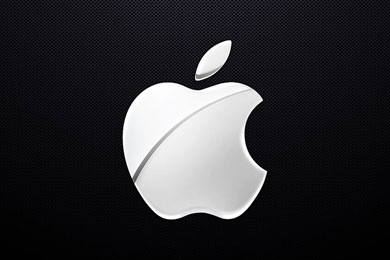
 [UPDATE: When this article was published on May 19, only EMI Music and Warner had finalized licensing deals with Apple for its cloud service. Now CNET is reporting that Sony Music has also struck a deal with Apple, making Universal the lone holdout.]
[UPDATE: When this article was published on May 19, only EMI Music and Warner had finalized licensing deals with Apple for its cloud service. Now CNET is reporting that Sony Music has also struck a deal with Apple, making Universal the lone holdout.]
Apple has reportedly signed a licensing deal with EMI Music for a cloud-based music service, and is close to finalizing deals with Universal Music Group and Sony Music.
Warner Music Group reached an agreement with Apple last month, and having EMI on board will bring the tech giant one step closer to offering a full-featured cloud music service. At present, available cloud options from Google and Amazon are unlicensed.
Once deals from Sony and Universal are finalized, Apple will be in a position to offer a service with more bells and whistles than its rivals. With Apple’s Worldwide Developers Conference on the horizon for June 6, the company might finally be ready to unveil the long-awaited service.
It remains unclear, however, which new options and features will be part of the Apple cloud experience. One possibility is the ability to scan a user’s iTunes library and match tracks with existing master copies in the cloud, thereby eliminating the need to upload gigabytes of files. Apple could also charge a subscription fee for cloud usage.
The stripped-down Amazon cloud interface could stand some improvement. Aside from a clunky file uploading process, it’s essentially just a hard drive with some navigational features to help track down the album, artist or song desired. Furthermore, the service offers no clear way to find any track-specific information like number of plays or year released. On the upside, users can apparently download the files to any computer and new mp3 purchases from Amazon are automatically sent to the cloud.
But there’s also also a strange disconnect between the Cloud Player and Amazon’s massive retail arm. One of the things that has always made Amazon such a vital and exciting place to shop is its discovery and recommendation engine. If a user rates, say, the latest Miranda Lambert album AND an old Talking Heads record, then Amazon makes all kinds of recommendations based on the purchasing habits of other users who own similar things. None of that appears to be happening in the cloud.
This is one area where the iTunes cloud service will likely triumph over its competitors. As an organizing tool, iTunes is without peer. Presumably Apple will inject its cloud product with a similar logic for grouping and sorting music in myriad ways. If it can also include an engaging recommendation tool that will encourage users to explore and discover, Apple will have the edge.
The major labels are rumored to be pulling for Apple to win the cloud battle. If a fully-licensed Apple cloud takes a huge chunk of the digital music marketplace, then Amazon and Google will be forced to secure licenses for their services to stay relevant.

Category: Featured, Sales/Marketing


